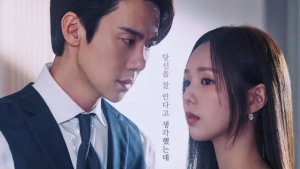 Currently Watching: Miss Korea
Currently Watching: Miss Korea
Dramas as "Pop Explosion"
Have you ever wondered what to call your drama obsession? Is there even a name for it, or is it just some inexplicable part of a person that cannot be given a label? I have asked myself this question on a number of occasions, but it was not until this past semester of school that I stumbled upon a name that makes sense to me.
“A pop explosion is an irresistible cultural upheaval that cuts across lines of class and race (in terms of sources, if not allegiance), and, most crucially, divides society itself by age. The surface of daily life (walk, talk, dress, symbolism, heroes, family affairs) is affected with such force that deep and substantive changes in the way large numbers of people think and act take place. Pop explosions must link up with, and accelerate, broad shifts in sexual behavior, economic aspirations, and political beliefs…” – Greil Marcus, “The Beatles” in The Rolling Stone Illustrated History of Rock and Roll, 1980.
So what, you may ask, does this quote have to do with drama? I argue that MDLers also reflect a larger pop explosion—the pop explosion of drama. Using Marcus’ definition as a guide, I will attempt to reveal the emergence of drama as a revolution which brings us together (even if we still argue about which drama is the best).
Dramas as an “Irresistible Cultural Upheaval”
Dramas contain the ability to put us in contact with culture. Just when we think we are only going to watch one episode, saying things like, “I just want to gauge how this drama will go, and I will watch it all later,” we end up watching all the episodes. We are sucked into the world of the drama (if it’s good), or we put the drama on trial to reality (if it’s bad). Regardless, we become the drama in such a way that it shapes us.
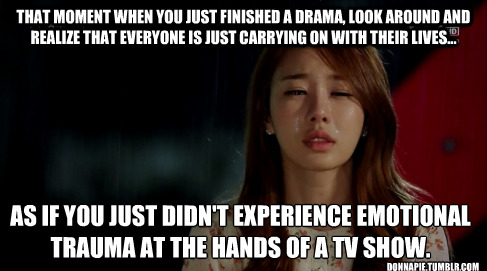
In addition to the pull that we feel toward a drama’s “world,” we also feel that pull toward the culture surrounding that world. For instance, if we watch a historical drama, we may want to study more on the period that the drama covers. If we see a particular practice or custom, we desire to learn and participate ourselves. As we amass this new knowledge of the surrounding culture, we may ask ourselves questions not only about the culture from which the drama comes, but also about our own culture. Through this process, we become better informed about other cultures as well as our own.
Dramas that “Cut Across Lines of Class and Race”
MDL is an environment where people come from all over the world, regardless of their position in society or the amount of money that each individual has. As we continue to watch, discuss, and dissect dramas, we cut the tape that marks the boundaries between countries, cultures, race, and class.
Often in dramas, we come across characters that slice and dice the red tape of class and race through their ingenuity, spunk, and intelligence. Not only that, but these characters transform attitudes about class or race which permeate the drama’s plot. Through our drama experience, we learn about a society’s view of its social system and how individuals can transform or reinforce a system through their actions.
For example, these ladies might not have had much but their hearts, but their leading men didn't care in the end:
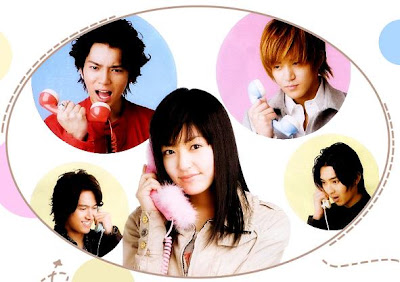
In Hana Yori Dango, Makino is the poorest student at Eitoku High. However, the lessons that she gives Domyouji transcend their rich guy/poor girl status.
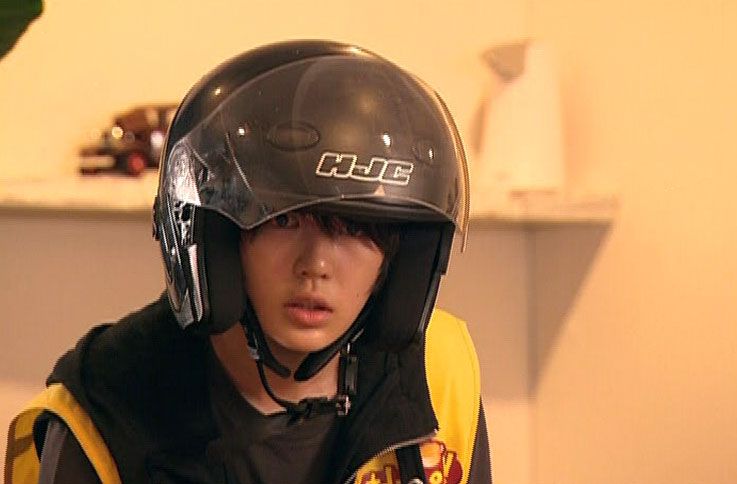
Go Eun Chan both conquered the rich/poor line and the“boy”/girl line in her quest for love and acceptance in Coffee Prince.

Sungkyunkwan Scandal’s Kim Yoon Hee faced the challenge of Joseon’s restrictions on women and class by entering into Sungkyunkwan University while capturing the heart of a minister’s son!
We, at MDL, act in the way we see in the dramas we watch. These ladies' leading men didn't care in the end, and neither do we!
Dramas that Affect the “Surface of Daily Life”
Dramas may affect how we go about our daily lives. For example, the way we dress, talk, and associate with our world reflects the dramas that we watch.
1. Dress
How many times do we watch a drama and see a character with a style that we would love to own or want to throw away? We often try and find items to supplement our own wardrobe, fix our hair like drama characters, and comment on the latest fashion through our connection with drama. We become trendsetters throughout the drama fandom, and just like Nobuta and her classmates, we rise and fall with the fashions that we see:
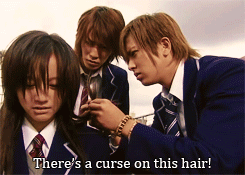
Dramas allow us to learn phrases in whatever language we are watching, and often drama lovers find that our learned manner of speech translates to our daily lives. Even in our written word, every day we see examples of this. Our use of phrases such as “Omo” or “daebak” or the Japanese “sugoi,” “kawaii,” or “baka” make us feel closer to the characters of our favorite dramas. In dramas, the characters use English in a similar way. It’s a way to look cool, hip, and in-tune with the global culture.
Furthermore, we have also developed ways of identifying events from dramas and drama culture which earn their way into our drama cultural canon. The MDL Dictionary contains many of these phrases and words. Every time a new word goes in, our drama culture grows.
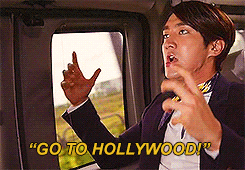
3. Our Association With the World
Dramas allow us to think outside the normal social realm. For example, in dramas, class distinctions are not the only social element under investigation. Even more so, sexual and social norms are put to trial. We see political intrigue, and we cheer for heroes who try to set the government (or the world) right. Our perspective of society, then, is transformed or reinforced by the dramas we watch.
Exhibit A: The Bromance
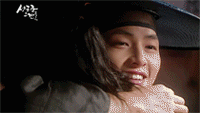
Honestly, how many people want these two to be together?
Exhibit B: Revenge Drama
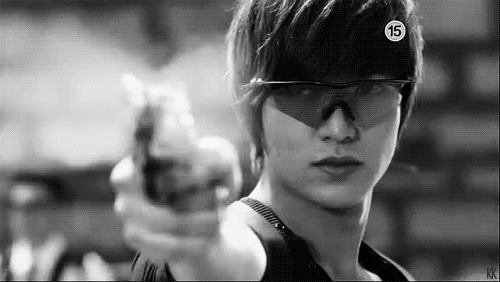
Fighting corruption is the City Hunter’s job, even if it means breaking the law.
Dramas permeate all facets of our lives. We not only participate in the lives of our characters as we watch, but we learn much about ourselves as well. While dramas create the “pop explosion,” we the viewers disseminate this explosion to others, get them addicted, and continue the revolution!
Do you know any other ways that drama could be a “pop explosion”? Do you agree or disagree with my assessment? Say so, below.
Exhibit B: Revenge Drama

Fighting corruption is the City Hunter’s job, even if it means breaking the law.
Dramas permeate all facets of our lives. We not only participate in the lives of our characters as we watch, but we learn much about ourselves as well. While dramas create the “pop explosion,” we the viewers disseminate this explosion to others, get them addicted, and continue the revolution!
Do you know any other ways that drama could be a “pop explosion”? Do you agree or disagree with my assessment? Say so, below.



